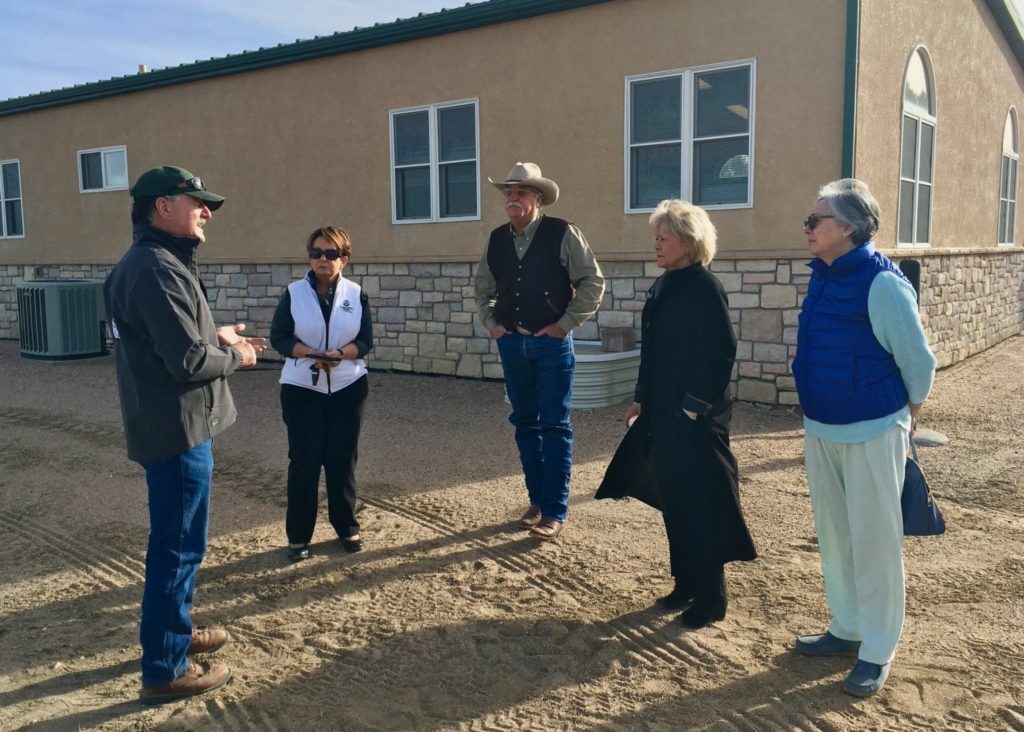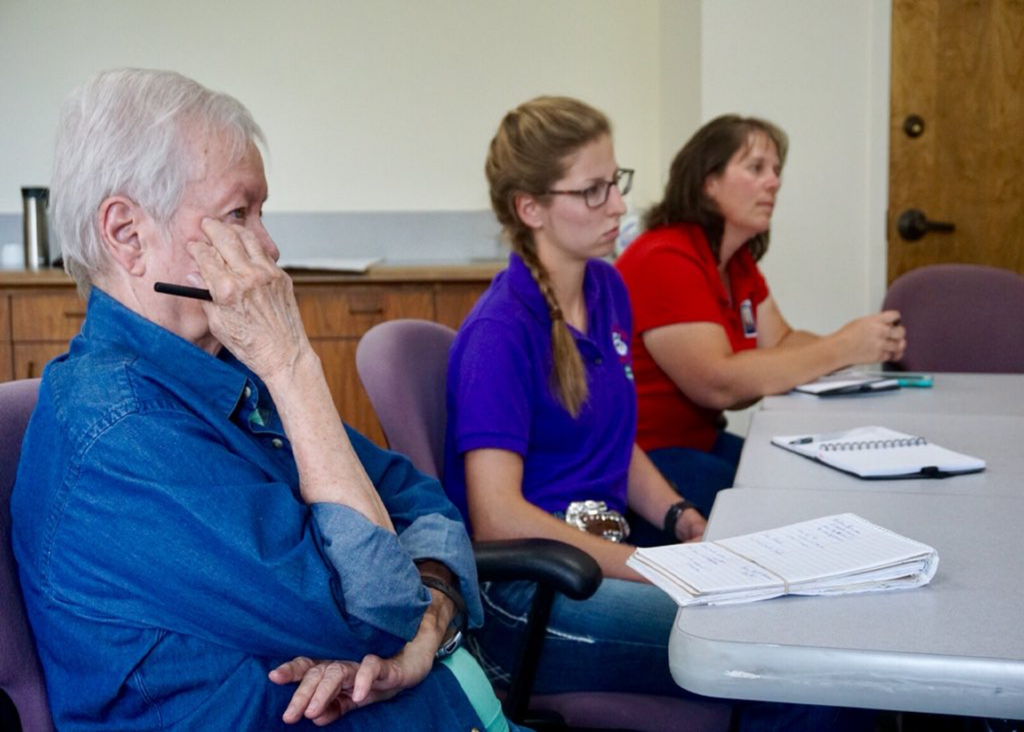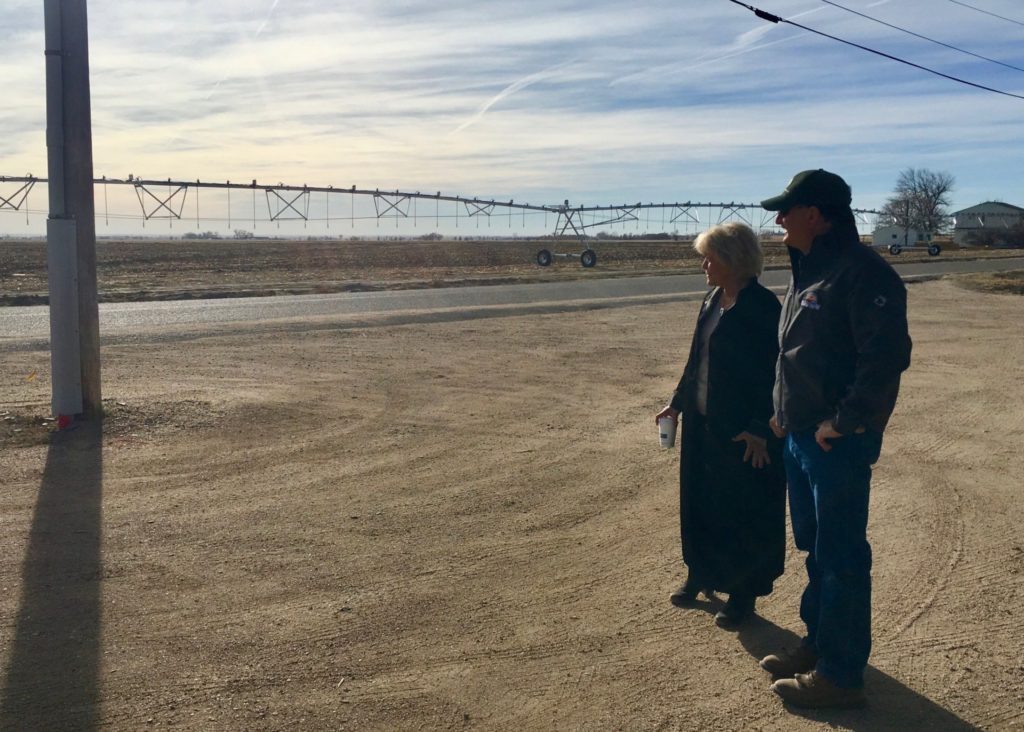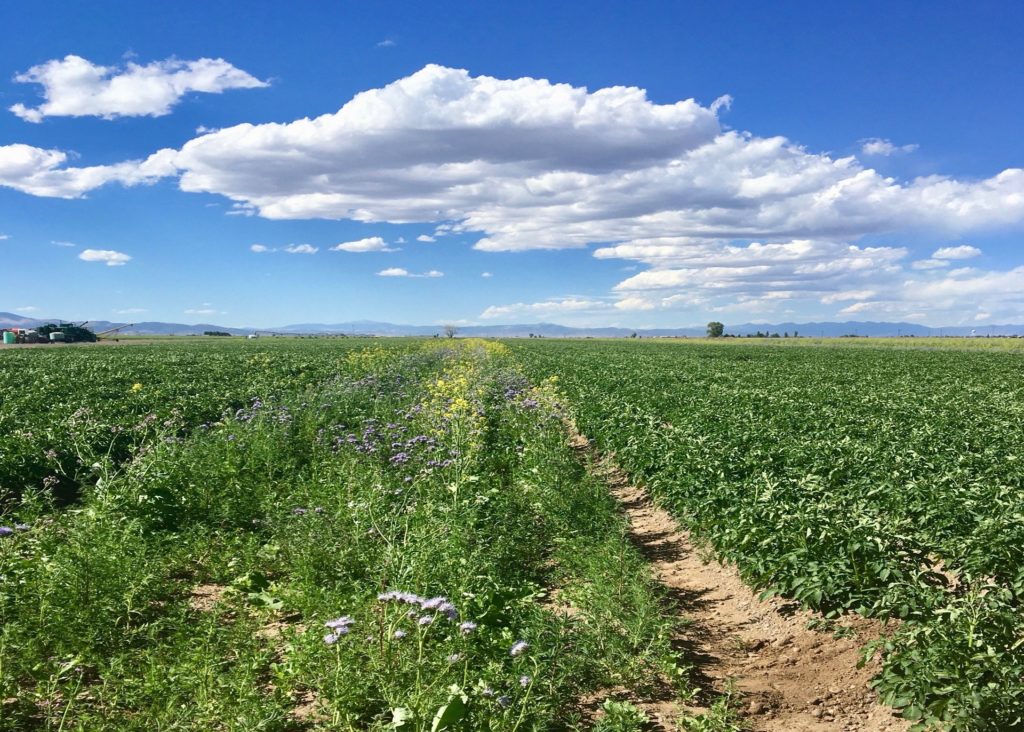



The Colorado State University System is conducting monthly listening tours to gather ideas from people around the state about the type of educational programming they would like to see at the future National Western Center (NWC).
“CSU is committed to serving all of Colorado through the National Western Center project, and these listening tours are a first step toward understanding how best to do that,” said Jocelyn Hittle, CSU’s director of Denver program development and a participant in the tours.
The tours are a brainchild of Christie Vilsack, a lifelong educator and the former first lady of Iowa, who, along with her husband and former U.S. Secretary of Agriculture, Tom Vilsack, joined CSU in April 2017 as special advisors for the NWC.
Christie Vilsack recognizes the importance of not only providing updates to communities around the state, but also listening to ideas and insights to create a space that reflects the needs and wants of Colorado residents.
Kathay Rennels, associate vice president for Engagement at CSU, sees the tours as a way to ensure the future NWC is as much a part of Colorado as the National Western Stock Show has been for the last 112 years.
“The input and ideas from all across the state are important,” Rennels said. “All citizens of Colorado need to see themselves at the NWC and the NWC needs to reflect all of Colorado.”
Building collaboration for the future
Many Colorado communities are already doing great work around water, energy, food systems, the environment, and health – CSU’s five themes at the NWC. And, as Vilsack often points out during the tour’s community meetings, there’s no need to reinvent the wheel.
“As we travel to communities around the state, our CSU team is learning about the wealth of STEM-Ag related programming that local communities have developed for their students,” she said.
“I look forward to partnering with schools, organizations, and communities around the state as CSU develops K-12 programming for the water building, the animal and equine health center and the CSU food systems center.”
Hittle agrees.
“We want to hear from educators, our Extension and Engagement staff, elected officials and leaders, and others who work in community and economic development to best understand how the NWC can showcase the excellent work that is happening statewide, and to connect communities across the state to the various types of resources that the NWC will be uniquely suited to provide,” she said.
Creating statewide understanding
The tours also provide the opportunity for CSU to share its vision for the National Western Center beyond the Denver metro area, where it is most well-known. Darlene Carpio, regional director for U.S. Senator Cory Gardner, helped organize stops in Yuma County and expressed her appreciation for the tour.
“The listening tour provided valuable information and connections on the expansion of the National Western project,” said Carpio. “The effort to include the rural portions of Colorado in the conversation was greatly appreciated and will prove to be positive to the entire state moving forward.”
Colorado communities visited to-date include Fort Morgan, Sterling, Yuma, Wray, Burlington, Lamar, La Junta, Rocky Ford, Castle Rock, Lone Tree, Steamboat Springs, Rifle, Grand Junction, Montrose, Gunnison, Greeley, Center, Alamosa, Pueblo, Eagle, Keystone, Frisco, and Lake City; and more tours are planned for the fall.
The CSU team notes that the experience of connecting with constituents around Colorado has been important to the process of creating a well-rounded project and understanding the topics that matter to different communities – but they admit it hasn’t been all work.
“Traveling the state to introduce the current plan and vision has been so much fun,” said Rennels.
Colorado State University at the National Western Center
Colorado State University has made a long-term commitment to the future National Western Center in north Denver and its surrounding communities.
As Colorado’s land-grant university, CSU’s mission of research, service, and access fits with the outreach vision of the National Western Center. CSU’s plans at the site focus on research and educational programming in the areas of food systems, water, environment, energy, and health.
A key and founding partner, CSU will have three buildings within the 250-acre National Western Center campus, including a water resources center, breaking ground in late 2019, and an animal health building, breaking ground in early 2020.
The University is currently working to engage with the community and to partner with local schools, nonprofits, and businesses to create vibrant spaces, impactful research and collaboration, and year-round programming to this unique project.
For additional information, visit nwc.colostate.edu.